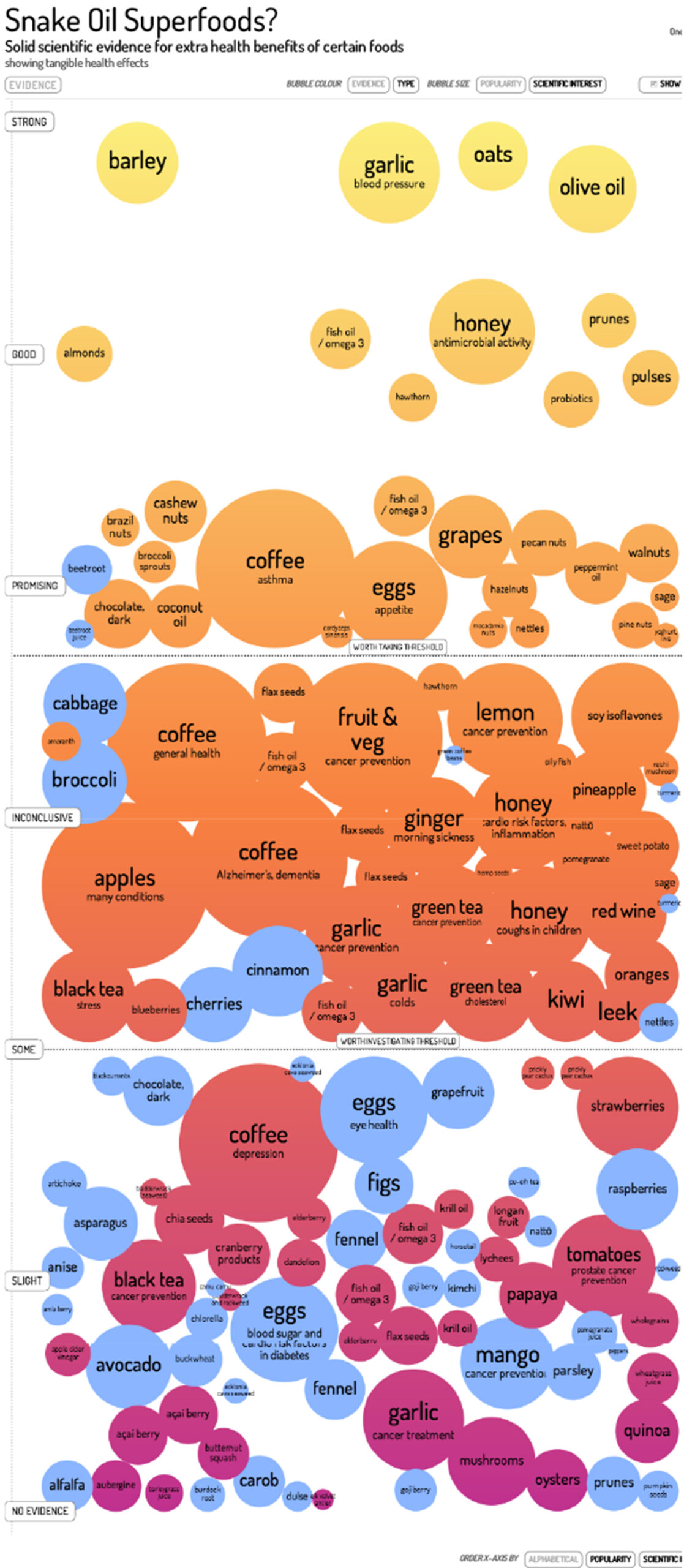We’ve all had those encounters with the newly converted and rather emphatic; that friend who cured their recent cold by eating raw garlic, the co-worker who justifies his coffee consumption by touting the health benefits, and (most recently) those who feel that chia seeds have made them superhuman. On the one hand, looking critically at our diets to address health problems is generally a good tactic and one underutilized in a country that so often turns to pharmaceuticals to address our physical woes. But the questions remains: how many of the super foods we believe in actually have super powers?
Miriam Quick, Head Researcher at Information is Beautiful, sorted through scientific studies, analysis, and reviews to determine which of the so-called superfoods live up to their stellar reputations. The results, as seen in this compelling graphic, are fascinating. Some foods really do out-do themselves. Olive oil is linked to better heart health, honey can help your allergies, and dark chocolate can significantly lower high blood pressure. Sadly some super foods are just myths. Quinoa’s effects haven’t been proven in any studies and oysters are unlikely to influence your sex drive.
Whether you believe in the powers of these superfoods or not, closely examining the impact food has on us can be a powerful process. And now you’ll have the evidence to back up your own super habits!







